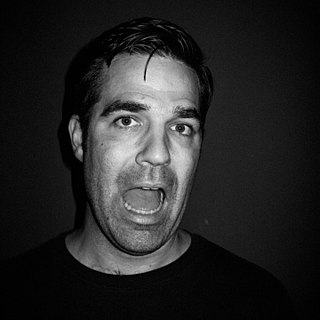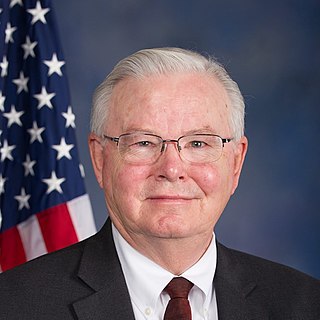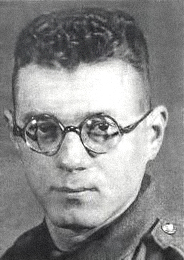Top 466 Civilian Casualties Quotes & Sayings - Page 7
Explore popular Civilian Casualties quotes.
Last updated on November 24, 2024.
To enhance the defense of the other agencies of government, including our law enforcement agency - it's so important. They're doing such a great job, by the way. We will put together a team of our best military, civilian, and private sector cybersecurity experts to comprehensively review all of our cybersecurity systems and technologies.
Militarism is the most energy-intensive, entropic activity of humans, since it converts stored energy and materials directly into waste and destruction without any useful intervening fulfillment of basic human needs. Ironically, the net effect of military, as opposed to civilian, expenditures is to increase unemployment and inflation.
Israel's shooting down of a civilian airplane and then the killing of 107 innocent peopel aboard, and their raid into neutral Lebanon are very dangerous developments. There's only one way I can see to stop it...is for the United States to take a very strong stand that this has to be settled...politically settled.
In early 1961 a new president, John F. Kennedy, was told by military leaders and civilian officials that the Kingdom of Laos - of no conceivable strategic importance to the U.S. - required the presence of American troops and perhaps even tactical nuclear weapons. Why? Because if Laos fell, Asia would go red from Thailand to Indonesia.
We have been under military rule since 1952, when a group of army officers overthrew Egypt's monarchy and ended Britain's occupation of the country. But that only replaced an external occupation with an internal one, in which favored sons of the armed forces replaced their uniforms with suits, a move meant to create a semblance of civilian rule.
The thing that really struck me was how many firms that we think of as strictly civilian had ties to the Pentagon. Companies like Apple, Starbucks, Oakley the sunglasses manufacturer. Even Google, and a lot of big corporations like PepsiCo, Colgate-Palmolive, and Nestle, that you don't normally think of as defense contractors.
I don't think it was a patriotic war. I think it was a mistake, a strategic mistake, and I think that the president of the United States wasn't patriotic in going after Saddam Hussein. He simply misled America and cost us casualties and killed and injured America's reputation around the world without valid reason for doing so. It's not patriotic; it's wrong.
First of all, it is clear that our efforts in Korea can blunt the will of the Chinese Communists to continue the struggle. The United Nations forces have put up a tremendous fight in Korea and have inflicted very heavy casualties on the enemy. Our forces are stronger now than they have been before. These are plain facts which may discourage the Chinese Communists from continuing their attack.
In this age, I don't care how tactically or operationally brilliant you are: if you cannot create harmony - even vicious harmony - on the battlefield based on trust across service lines, across coalition and national lines, and across civilian/military lines, you need to go home, because your leadership is obsolete.
Mike Hall was my old friend and, more important, the finest soldier I'd ever known. After over 30 years of service and then 18 months at a good civilian job, a phone call had brought the retired command sergeant major back on active duty to become the senior enlisted adviser of all international forces in Afghanistan.
We got a commitment that 3 million nurses are going to be trained to better identify these signs [of PTSD], because, you know, when these troops come home and they become veterans and they go back into the civilian community, they're not always going through the VA system for medical care. They're going to show up at community hospitals and clinics.
Apartheid is a crime against humanity. Israel has deprived millions of Palestinians of their liberty and property. It has perpetuated a system of gross racial discrimination and inequality. It has systematically incarcerated and tortured thousands of Palestinians, contrary to the rules of international law. It has, in particular, waged a war against a civilian population, in particular children.
How much atonement is enough? The bombing must be allowed as at least part-payment: those of our young people who are concerned about the moral problem posed by the Allied air offensive should at least consider the moral problem that would have been posed if the German civilian population had not suffered at all.
In Turkey also, for a long time, the military was the decisive force but in the past 10 years they have backed off somewhat and the civilian government has gained more independence and autonomy even to shake up the military command. In fact, it even arrested several high-ranking officers [for interfering in governmental affairs]. Maybe Pakistan can move in a similar direction.
Ultimately, the court is heading to a doctrine of 'separation of campaign and state.' This doctrine, like separation of church and state or separation of military and civilian authority, is not explicit in the Constitution but flows naturally from its structure and commitment to freedom and democracy.
The Lusitania is important, of course, because this is where Germany began its maritime campaign using this brand-new weapon. We have to appreciate how the submarine, as a weapon against civilian shipping, was a particularly novel thing - so novel that many people at the time dismissed its potential power, its potential relevance.
Former vice president Al Gore has devoted his post-administration years to a mission to tell the world about global warming. It's funny, but in his civilian life Gore has discovered the voice that voters had trouble hearing when he ran for president in 2000. The voice he has found is clear, impassioned, and moving.
We do this in order to slow down aggression. We do this to increase the confidence of the brave people of South Vietnam who have bravely born this brutal battle for so many years with so many casualties. And we do this to convince the leaders of North Vietnam-and all who seek to share their conquest-of a simple fact: We will not be defeated. We will not grow tired. We will not withdraw either openly or under the cloak of a meaningless agreement.
Never before has a populist democracy attained international supremacy. But the pursuit of power is not a goal that commands popular passion, except in conditions of a sudden threat or challenge to the public's sense of domestic well-being. The economic self-denial (that is, defense spending) and the human sacrifice (casualties, even among professional soldiers) required in the effort are uncongenial to democratic instincts. Democracy is inimical to imperial mobilization.
To confine soldiers to purely military functions while urgent and vital tasks have to be done, and nobody else is available to undertake them, would be senseless. The soldier must then be prepared to become a propagandist, a social worker, a civil engineer, a schoolteacher, a nurse, a boy scout. But only for as long as he cannot be replaced, for it is better to entrust civilian tasks to civilians.
When I was at the CIA I asked my civilian advisory board to tackle some tough questions. Among the toughest: In a political culture that every day demands more transparency and more public accountability from every aspect of national life, could American intelligence continue to survive and succeed? That jury is still out.
Some of my best sources are ex-policemen, just to get a feeling of what it's like to be one. And it's quite different from being a civilian - except, of course, that I believe that policemen are just special sorts of civilians. Things like how hard it is to hold someone that doesn't want to be held. This is the kind of thing that is worth knowing.
Throughout history civilian populations and political rulers have talked of peace. We have never been free of war. The soldier, whose profession is war, understands that peace must be enforced by superior military might. The certainty of defeat is the only effective deterrent we can use to maintain peace. Furthermore, we can be strong without being aggressive.
The Constitutional Convention debated whether America should even have a standing army. ... They worried that a powerful military could rival civilian government for power in our new country, and of course they worried that having a standing army around would create too much of a temptation to use it.
The casualties in the Civil War amount to more than all other wars - all other American wars combined. More people died in that war than World War II, World War I, Vietnam, etc. And that was a war for white supremacy. It was a war to erect a state in which the basis of it was the enslavement of black people.
There is a residual sense for me, having grown up in the early '70s, that I did not know I had, which was a sense that the military are different than I. Because there was such a divide between the military world - and there still is, because there's no draft - and the civilian world is one of the rotten harvests of the Vietnam War, was this sort of bifurcation of America in that way.
It is a lesson of the sixties: liberals get in the biggest political trouble - whether instituting open housing, civilian compliant review boards, or sex education programs - when they presume that a reform is an inevitable comcomitant of progress. It is then they are most likely to establish their reforms by top-down bureaucratic means. A blindsiding backlash often ensues.
Because President Obama had an overall strategy, military and civilian leaders under his command could make reactive decisions that advanced the president's goals. In the military, we call that commander's intent: When there's a decision to be made and you don't have exact guidance at that moment, you at least know overall what your boss wants.
Our soldiers in another area were attacked chemically. Our soldiers - they went to the hospital as casualties because of chemical weapons, but in the area where they said the government used chemical weapons, we only had video and we only have pictures and allegations. We're not there ; our forces, our police, our institutions don't exist there. How can you talk about what happened if you don't have evidence ?
In January of 2009, President Barack Obama signed an executive order to close Guantanamo Bay within a year's time, vowing to continue to fight terror but 'in a manner that is consistent with our values and ideals.' A plan was considered to move a number of detainees to stateside prisons in order to have them stand trial in civilian court.
At the end of the day...if your army won't fight, it's because they don't trust their incompetent, corrupt generals, they don't trust each other. This is an enduring civil war between the Shia, the Sunni, and the Kurds. So I don't think we've got any options and we'd be ill-advised to start bombing where we really can't sort out the combatants or understand where the civilian population is.
We all must be mindful that the United States has diplomatic, civilian, and military personnel deployed in other countries with both challenging security environments and active terrorist networks interested in targeting not just our facilities but our people. One of their greatest protections - knowing that the United States does not negotiate with terrorists - has been compromised.
Some 70% to 80% of all who join the military will return to the civilian workforce. They'll return to communities, and one of the things I've worried about is the increasing disconnect between the American people and our men and women in uniform. We come from fewer and fewer places. We're less than 1% of the population.
The word 'art' interests me very much. If it comes from Sanskrit, as I've heard, it signifies 'making.' Now everyone makes something, and those who make things on a canvas with a frame, they're called artists. Formerly, they were called craftsmen, a term I prefer. We're all craftsmen, in civilian or military or artistic life.
























































